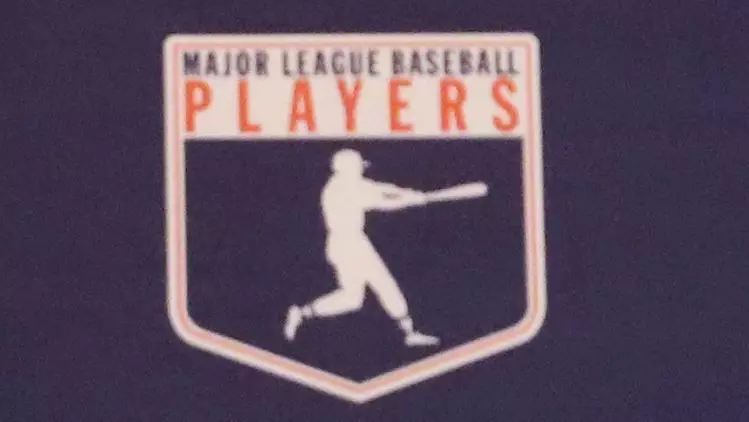The world of professional sports is often romanticized, with images of victory and glamor dominating the narrative. However, lurking beneath the surface can be serious financial complexities and ethical dilemmas. A recent investigation by the FBI into OneTeam Partners—a multibillion-dollar group-licensing firm—shines a spotlight on the intricate relationships between athletes’ unions, financial entities, and player remunerations. This inquiry not only raises critical questions about financial governance in sports but also highlights lingering issues concerning accountability and transparency within athlete unions.
Initial inquiries from law enforcement to players exhibiting union leadership suggest a considerable focus on the financial dealings of OneTeam Partners, which emerged in 2019 through the collaborative efforts of the NFL Players Association (NFLPA), the Major League Baseball Players Association (MLBPA), and RedBird Capital. Such a high-profile investigation signals the necessity for scrutiny, especially as it pertains to how player earnings and rights are managed. While some may argue that FBI involvement indicates potential wrongdoing, it is crucial to recognize that not all individuals involved are targets of the investigation.
One aspect that intrigues many fans and analysts alike is the immense financial success associated with OneTeam. Valued at $1.9 billion in 2022, the partnership serves not only the NFL and MLB but has also expanded its reach to include women’s basketball, soccer, and collegiate athletes. These significant deals enable different players to monetize their name, image, and likeness more effectively. Yet, the fast-paced financial growth raises questions: at what cost does this prosperity come, and who ultimately benefits from these lucrative arrangements?
Union Leadership Under Scrutiny
Both the MLBPA and NFLPA are navigating uncharted waters as they deal with the fallout from the investigation. Allegations of nepotism, corruption, and inadequate disclosures within the MLBPA compound the ongoing scrutiny of its executive director, Tony Clark. The serious accusations detailed in the National Labor Relations Board (NLRB) complaint add complexity to an already tense atmosphere. Clark’s ascent to the role of executive director, particularly following the death of his predecessor Michael Weiner, may evoke discussions about favoritism as accountability is called into question.
Additionally, the decision for union leadership to engage separate legal counsel outside of the union hints at the gravity of the situation. It raises an uncomfortable reflection on the state of governance within these organizations. Are the existing frameworks and oversight mechanisms robust enough to safeguard players’ interests, or do they facilitate conditions ripe for misconduct? The dichotomy of heightened financial resources for the unions versus the ethical dilemmas they face presents a stark contrast that cannot be ignored.
Transparency versus Accountability: The Delicate Balance
OneTeam’s official statement reflects a commitment to transparency while denying any wrongdoing. The union’s rebuttal to allegations suggests a push for holding its executives to the highest standards. However, players’ trust in these institutions may be at stake, particularly when leadership allegedly misrepresents significant financial interests. When players have been instrumental in forging lucrative agreements, the implications of proper disclosure and ethical governance should be paramount.
Additionally, financial health does not equate to ethical integrity. The MLBPA reportedly holds more than $353 million in total assets—its highest value to date—yet the benefits derived from the recent financial boom may not trickle down equitably to the players. The nuances of equitable resource allocation are crucial, as players deserve clarity about how capital is generated and allocated within the union framework.
The specter of an independent audit conducted by the NFLPA into OneTeam’s compliance with best governance practices offers a glimmer of hope in navigating these turbulent waters. With such extensive financial ties, the sustainability of these partnerships hinges on adherence to ethical practices. The divergence between financial success and ethical foundations indicates that while profits may rise, the values underpinning these transactions may falter.
The Broader Implications of the Investigation
The ramifications of the FBI’s investigation extend wider than the units directly involved. As scrutiny heightens for the MLBPA and NFLPA, it will likely inspire more significant nervousness among player unions across various sports leagues. The discourse surrounding athlete management, ethical governance, and financial transparency is paramount. It invites ongoing conversation as to how future institutions can design better frameworks that prioritize player welfare over mere financial gain.
In this ever-evolving landscape, athletes themselves must advocate for their interests, ensuring that they are not merely pawns in lucrative games played by corporate partners and union leaders. The outcome of this investigation could potentially reshape the future of professional sports and the way financial dealings are perceived, serving either as a wake-up call for rigorous oversight or a cautionary tale of misplaced trust in leadership.

